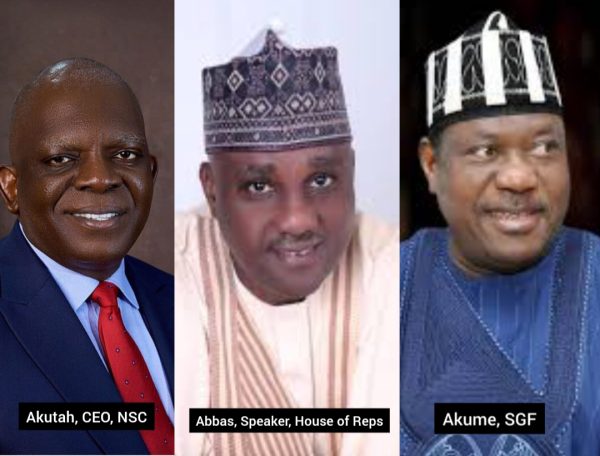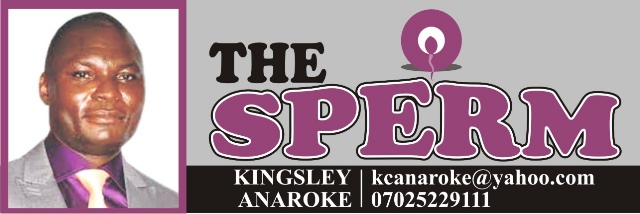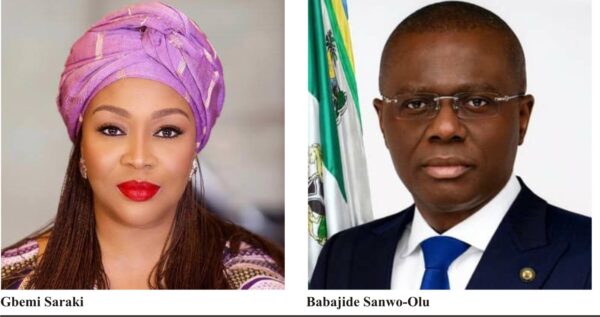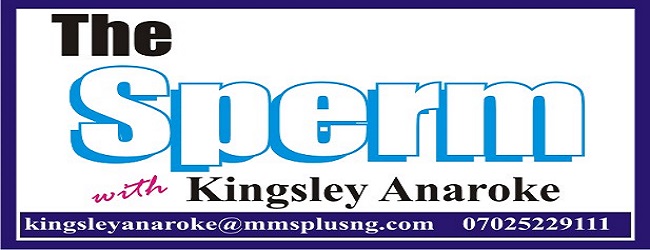NISPERA BILL: Hold Akutah Responsible If It Fails!
By Kingsley Anaroke
The celebration has ended but the work of the fun-killers has just begun. It was a gathering of undertakers and facilitators at the just concluded public hearing of the Nigerian Shipping and Port Economic Regulatory Agency (NISPERA) Bill in Abuja on Monday. It was expected, though. Public hearing of a bill attracts people of diverse interest.
With the literal success of the public hearing on Monday, the NISPERA Bill now awaits Third Reading at the National Assembly. However, there are damaging gaps trailing the public hearing. Relationships, truth and patriotism were sacrificed; pretenders unveiled and bad-blood created.
No public hearing of a bill in the history of maritime industry in Nigeria generated the level of confusion and mischief like the NISPERA Bill did. Not even the making of the Cabotage Act in 2003 and the highly controversial Maritime Security Agency(MASECA) Bill which sought to establish an agency to protect Nigeria’s territorial waters. It was then rejected by stakeholders as proposed in 2009,2011 and 2017 because it was a duplication of the functions of Nigerian Navy and that of the Nigerian Maritime Administration and Safety Agency(NIMASA).
Following, however, the presentations made by diverse stakeholders at the session, the legislators concluded that when passed into law, the NISPERA Bill, which also seeks to repeal the Nigerian Shippers’ Council (NSC) Act, would curb arbitrary charges and other illegalities from operators in the Nigeria’s maritime industry.
The Chairman of the House of Representatives Committee on Shipping Services and Related Matters,Hon. Abdulssamad Dasuki further explained the Committee was still collating memoranda from various stakeholders on the Bill to present a report to the House of Representatives for consideration and Third Reading.
“The Public Hearing today showed that every stakeholder in the maritime industry wants an economic regulator for the industry. The era of impunity has to stop. The stakeholders’ input were very useful and educative for us today”, he noted.
In his presentation, the Minister of Marine and Blue Economy, Adegboyega Oyetola, said,”The Ministry of Marine and Blue Economy is willing to partner stakeholders in the sector, especially the National Assembly, to enthrone regulatory framework for the Marine and Blue Economy industry.
Oyetola, represented by the Permanent Secretary of the Ministry, Olorunola Olufemi, stated,” It is on this note that we are eager and very happy to be a part of the process that will reform the sector.
“The Ministry is in the process of collating its considerations on this Bill and submit accordingly. We will encourage all stakeholders to also contribute their quota towards the actualization of this process for the interest of the nation,” he added.
The Executive Secretary/CEO of NSC, Barr. Pius Akutah, in his remarks, explained that the concerns raised by the stakeholders would be appraised and considered but however, said,” We are not bringing in a new law that will strangulate the sector. The intention is to bring sanity to the sector and to ensure that the sector is booming”.
The storms of activities that preceded the public hearing could not have been summed up better as a burial of patriotism. And Barr. Akutah should be held responsible if this Bill fails to fly this time, again.
It did not mean anything to the stakeholders, as it were, that Nigerian shippers have to pay over 30 categories of ocean freight rates, surcharges and local charges to shipping lines. Many of these arbitrary charges are peculiar to Nigeria and come with huge economic implications and burden to Nigerian consumers. They include: Congestion surcharge, extra risk insurance surcharge, freight tax surcharge, waiver surcharge, peak season surcharge, heavy weight charge, carrier security fee, commission on deposit, container deposit, demurrage charge, high cube surcharge, freight rate tax(different from freight tax surcharge earlier mentioned), among many others. These are separate from the Haulage costs and Terminal charges which are progressively charged.
There are over 20 combined unified permits charged by different local government areas across the country. Customs duty and other miscellaneous fees are not listed here. Is there need and urgency therefore to have a Shipping and Port Economic Regulator with these anti-business charges?
These arbitrariness were thrown overboard for “territorial rivalry and occupation”; “What is in it for me?” and other selfish and monopolistic considerations that gave rise to the implosion in some groups, conflict of interests; confusion and the quest to enrich the pockets, which almost marred the public hearing.
The question that seeks urgent answer now is: Which maritime agency should be vested with the power of regulating the industry economically since the government obviously cannot create another agency in the face of Steve Oransanye’s report reality? Simple answer: Because other agencies provide services in the industry, they can’t be a judge in their own court! This is a common refrain now, making the choice for NSC, a wise one; and the Ayes have it!
However, if any agency will acquiesce to strip itself of its service function, then it is free to present a bill for repeal of name and assumption of economic regulatory role.
How patriotism was assassinated on the altar of interest and ignorance. While members of staff of NSC were interested in how to leverage the moment for their pockets, they alienated a critical mass of workers that could add value to the Bill and the public hearing. The Executive Secretary was lost in the maze of the internal intrigue orchestrated by forces and interests outside the Council.
Barr. Akutah even forgot that strategic effective communication is critical to success of lobby and public hearing. Surprisingly, one of the moves he made in this direction can be likened to giving a Carpenter the work of a Lawyer, to appear in court. The gap was obvious!
The Nigerian Port Consultative Council (NPCC) which had consented to helping the NSC to advocate for the amendment of the Bill as a group, suddenly was hit by division fueled by interests. The implosion whittled down its corporate power as members sought alternative means of retaining their integrity.
Absence of patriotism also reared its head in Nigerian Shippers Association. The national body which is still in its infancy with a soothing teething powder, could not engage in name and interest defense, but the Shippers Association of Lagos State(SAL) with a divided abode objected to the making of the Act to repeal NSC. SAL believes it has huge economic implications against shippers, who have whopping trillions of naira to claim from shipping lines in which negotiation is ongoing.
The Seaport Terminal Operators Association Nigeria (STOAN) which has been against the appointment of NSC, over the years, as the port economic regulator is divided this time. A critical and prominent member of the team pulled out.
The maze of confusion arising from different versions of the NISPERA Bill flying around, infiltrated the Maritime Advocacy Foundation (MAF), leading to a misrepresentation of the subject of the Bill. They meant total support of the Bill in letters and spirit. However, they have their mistakes and hubris.
The negative effect of the duplication of House of Representatives maritime committees in the National Assembly showed for the first time in maritime industry with the rape of patriotism. There was a clash of interests between the House Committee on Ports and Harbour, chaired by Hon. Garba Mohammed and the House Committee on Shipping Services and Related Matters, chaired by Hon. Abdulssamad Dasuki who called for the Public Hearing. The Ports and Harbour committee had shifted the public hearing indefinitely for no known reason other than interest which smacks off betrayal and un- patriotism.
Interestingly, the media was blamed for the mischief and deliberate moves to kill the truth by NSC, albeit ignorantly and other stakeholders. From this ash of blame, emerged the Marine and Blue Economy Integrity Group, championed by Asu Beks, a maritime media personality. This created more tension and confusion as more discordant tunes trail the public hearing. Different groups peddled postponement of the event at one time and changed another minute. It was obvious corporate communications and strategy failed from the source-NSC.
It is a good strategy that the Speaker of the House of Representatives,Hon. Tajudeen Abbas is said to be the sponsor of the NISPERA Bill, the events preceding the public hearing where two house committees under his leadership were pitted against each other is enough sign of the danger ahead unless some strategic steps are taken by Akutah and his inner chambers.
The forces against the Bill are at work now, throwing money around in the name of lobby. For years, a leader in the telecommunication industry, paid a member of the parliament in Nigeria to ensure that the Anti-trust bills sent over time in different versions to the National Assembly by the Bureau of Public Enterprise(BPE) then, did not see the light of the day. The “Honourable” as it were aided the multinational and its conspirators to kill the bill that would have ushered in a competitive regulatory framework in Nigerian business environment. Another case of patriotism assassination.
Recall that the National Transport Commission(NTC) Bill on two occasions got to President Mohammadu Buhari’s table for assent but it never got his assent. It means that crossing the hurdles of the National Assembly is not a guarantee for President Bola Tinubu’s assent, ultimately.
Akutah, at this juncture, must leverage his position and goodwill of the Secretary to the Government of the Federation(SGF), Sen. George Akume; Chief of Staff to the President, Hon. Femi Gbajabiamila, the First Lady, Sen. Oluremi Tinubu, among others, to make NISPERA Bill an Act. Hold Akuta responsible if this Bill fails, again!








